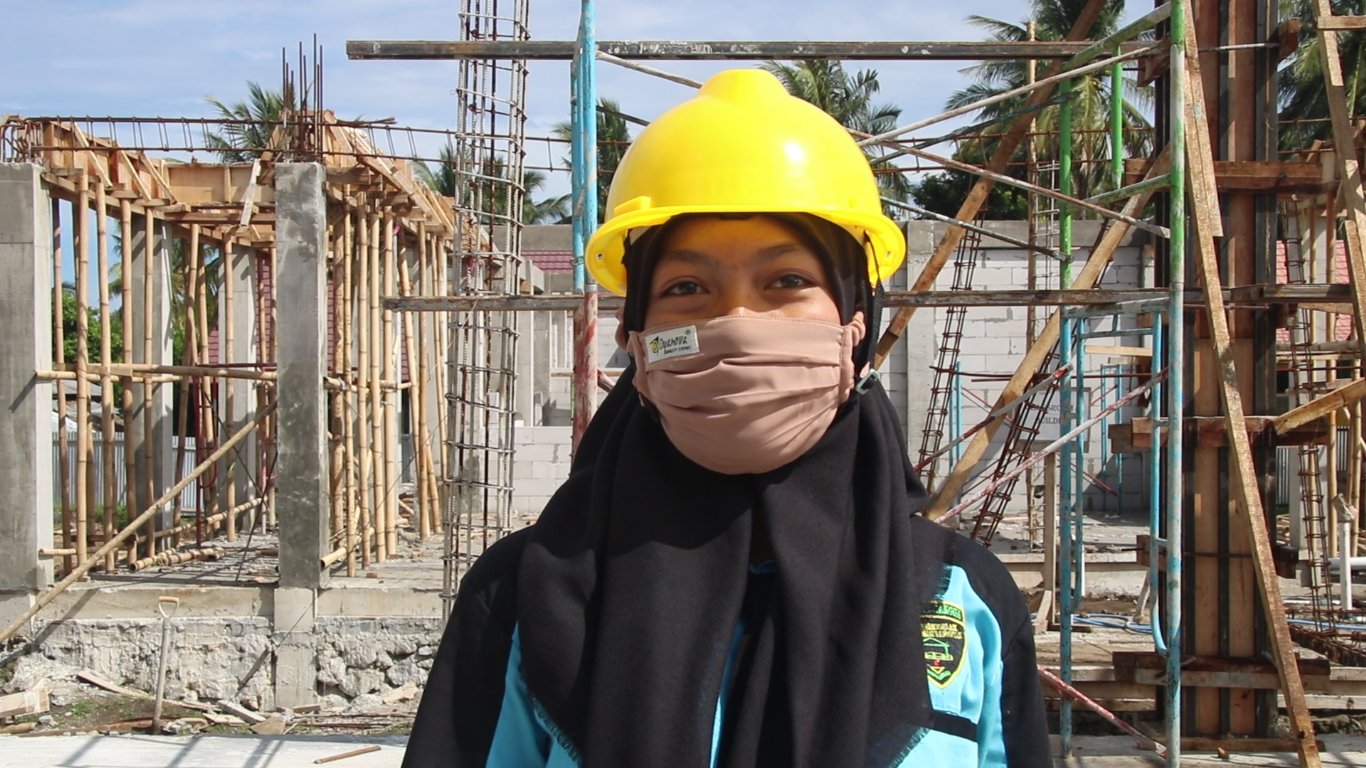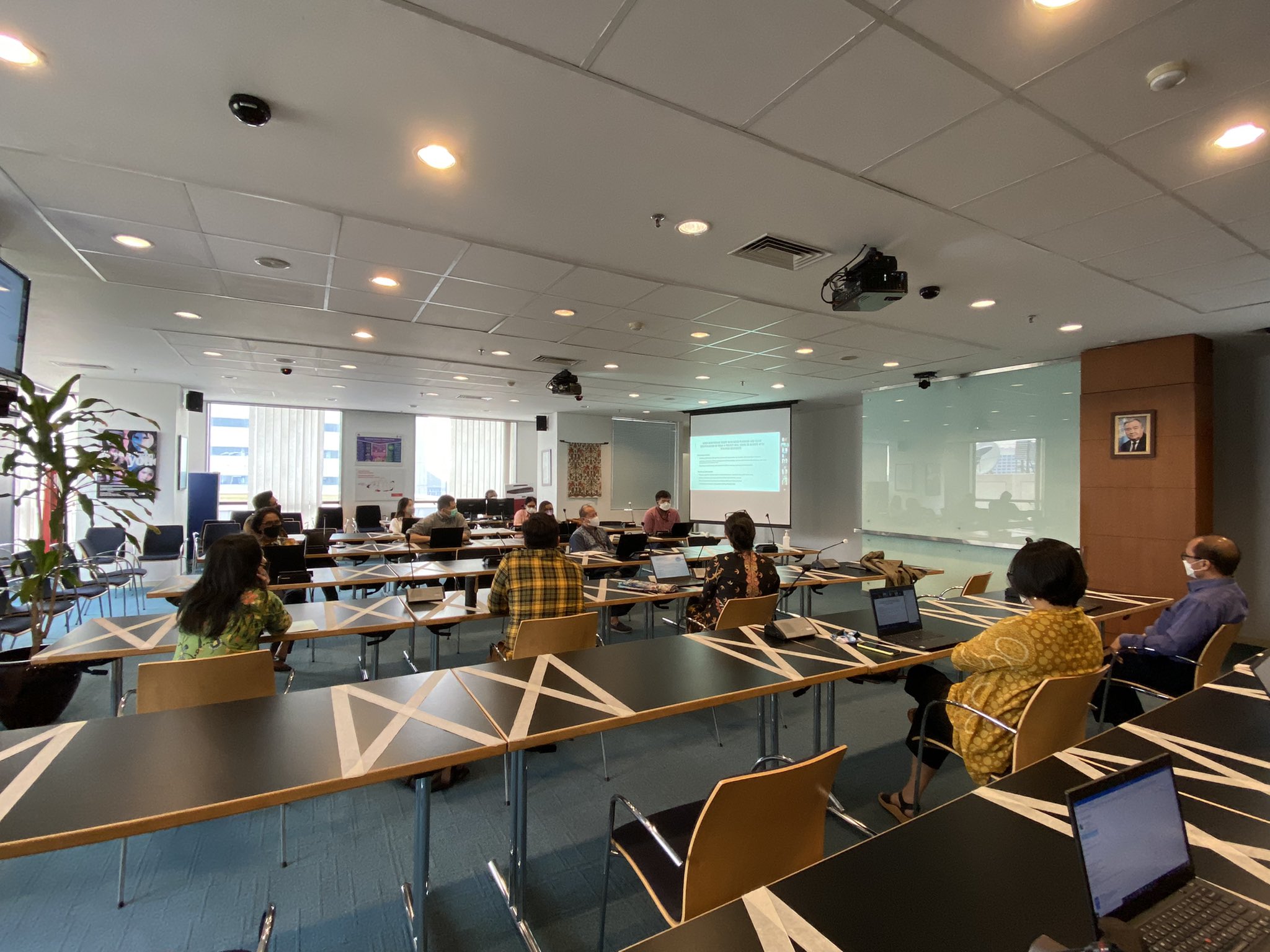
The United Nations Development Programme (UNDP) and the German Embassy in Jakarta, in collaboration with the German Agency for International Cooperation (GIZ), hosted a high-level event on Business and Human Rights.
Jakarta, 31 May 2023 - The United Nations Development Programme (UNDP) and the German Embassy in Jakarta, in collaboration with the German Agency for International Cooperation (GIZ), hosted a high-level event on Business and Human Rights. The event discussed the implications of the German Supply Chain Act and the importance of responsible business conduct for sustainable development.
The dialogue featured panel discussions with esteemed participants from the Ministry of Law and Human Rights of the Republic of Indonesia, the Ministry for Economic Cooperation and Development of the Federal Republic of Germany, the European Union, EKONID, KADIN, UNDP, GIZ, and German companies like Adidas and Siemens.
Global supply chains have the potential to benefit emerging economies by reducing poverty and creating decent work opportunities. However, it is vital to recognize the impact of business actions on human rights, particularly for vulnerable individuals.
The COVID-19 pandemic has highlighted the vulnerability of workers along supply chains, leaving them jobless and without social protection. The United Nations Guiding Principles on Business and Human Rights (UNGPs) provide a crucial framework for responsible business conduct, ensuring that human rights remain a priority.
In this context, UNGPs adopted a decade ago, stand as a crucial milestone. Regarded as the world's most authoritative and normative framework guiding responsible business conduct, the UNGPs emphasize three pillars: Protect, Respect, and Remedy. These principles have been instrumental in shaping new approaches to trade, investment, and regulatory policies, placing human rights at the forefront.
"Responsible, human rights-focused businesses contribute more than just economic growth. They promote accountability and responsible behavior, fostering inclusive and accountable institutions in the private sector, complemented by efforts in the public sector," stated Sujala Pant, UNDP Deputy Resident Representative.
The German Supply Chain Act represents a significant step toward effectively protecting people and the environment in global supply chains. As Germany's first binding regulation for corporate compliance with internationally recognized human rights principles, the act enhances social rights protection for workers and facilitates their increased participation in global economic growth. Furthermore, the act provides companies with a clear legal framework and creates legal certainty, striking an effective balance between protecting human and environmental rights and ensuring the feasibility of implementation.
"The German government is fully committed to enhancing human rights protection in the business context as an essential part of its value-oriented foreign policy.
The German Supply Chain Act underscores the firm commitment of the German government and business sector alike to be leading partners in fair and sustainable globalization," affirmed Thomas Graf, Deputy Ambassador to Indonesia.
UNDP, in collaboration with the European Union, is actively advancing the implementation of the UNGPs in Indonesia. Partnerships with government ministries have led to comprehensive training programs for companies to assess their impacts on human rights and the environment.
Furthermore, generous support from the Government of Japan has played a pivotal role in assisting businesses in strengthening their responsible practices and conducting human rights due diligence within their supply chains.
As responsible business practices drive sustainable development, UNDP remains committed to promoting dialogue and partnerships in the business sector.
For media inquiries, please contact:
Sagita Adesywi – Business and Humand Rights Specialist (sagita.adesywi@undp.org)

 Locations
Locations















